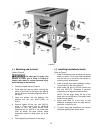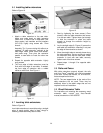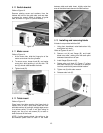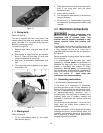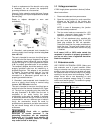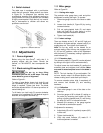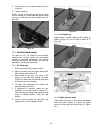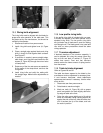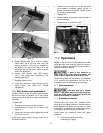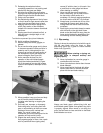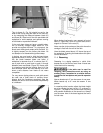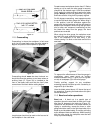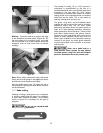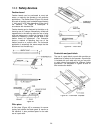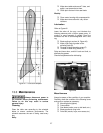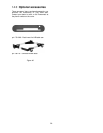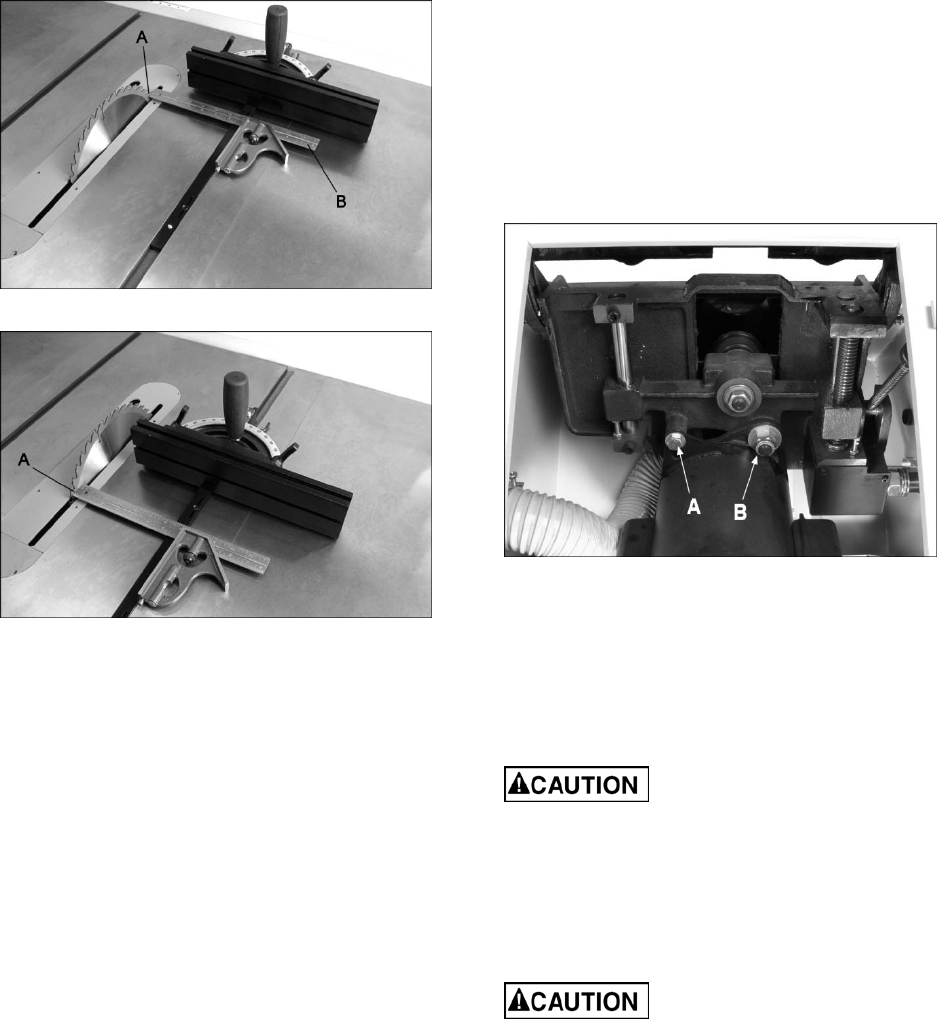
21
Figure 29
Figure 30
5. Rotate marked tooth (A) so that it is slightly
above table top at the rear and, using the
square as before, verify that the distance to
the blade is the same. See Figure 30. If the
distances are not the same, make a careful
note of the difference.
6. Loosen table screws (item #30, section
16.1.1), and nudge table according to the
distance you noted.
7. Retighten screws firmly.
8. Verify the alignment, angle pointer setting,
fence setting, etc. Make any needed
adjustments.
10.9 Belt tension and replacement
Tension of the drive belt should be inspected after
the first few days of operation, as it may stretch
slightly during initial use; also inspect it periodically
thereafter.
To tighten belt:
1. Disconnect machine from power source.
2. Loosen screw (A, Figure 31) and hex nut (B,
Figure 31).
3. Press down on motor while retightening screw
(A) and hex nut (B).
If belt shows signs of wear, fraying, cracks, etc. it
should be replaced:
1. Loosen screw (A) and hex nut (B) and pivot
motor upward to release tension on belt. If
greater movement is needed, remove screw
(A) and pivot motor further.
2. Replace belt.
3. Reinstall screw (A) and push down on motor to
tension new belt.
4. Tighten screw (A) and hex nut (B).
Figure 31
11.0 Operations
NOTE: If the saw is to be used without the metal
stand provided, care must be taken to provide a
hole in the stand or bench used by the operator to
facilitate removal of sawdust.
If there is any tendency to
slide, walk, or tip over during operation, the
stand or bench MUST be secured to the floor.
Familiarize yourself with the location and operation
of all controls and adjustments and the use of
accessories such as miter gauge and rip fence.
11.1 Start/stop switch
This table saw has a manual
switch. If the power goes out during operation,
push the STOP button. Otherwise, the saw will
start up when power is restored.
11.2 Kickback prevention
Serious injury can result from kickbacks which
occur when a workpiece binds on the saw blade or
binds between the blade and rip fence or other
fixed object. This binding can cause the workpiece
to lift up and be thrown toward the operator.
Listed below are conditions which can cause
kickbacks:
Confining the cutoff piece when
crosscutting or ripping.



